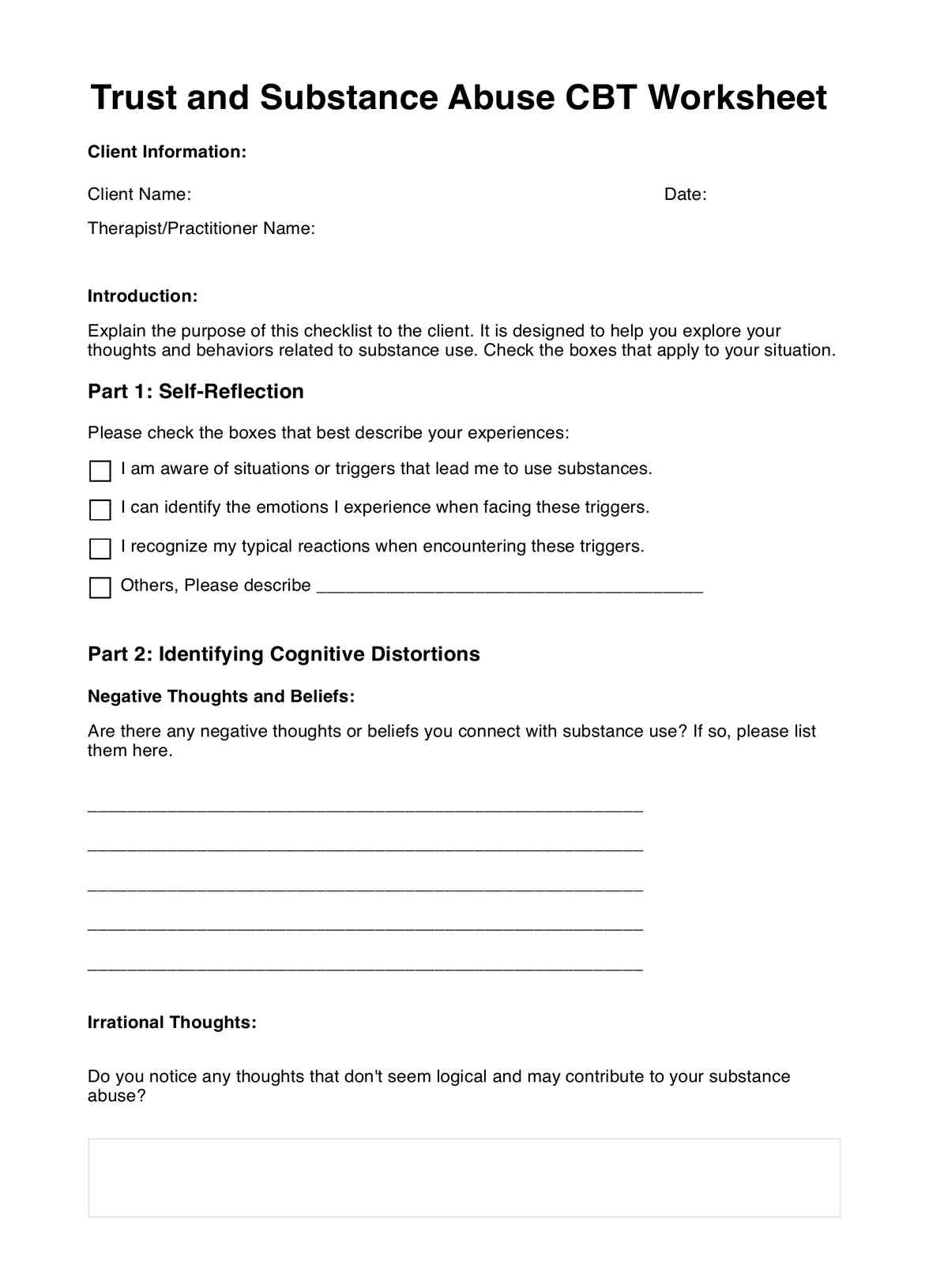Completion time varies depending on the individual and their progress. Some individuals may complete it within a single session, while others may require multiple sessions.

Trust and Substance Abuse CBT Worksheet
Trust and Substance Abuse CBT Worksheet can assist in cognitive-behavioral therapy for substance abuse. Download your free PDF now.
Trust and Substance Abuse CBT Worksheet Template
Commonly asked questions
The worksheet offers valuable benefits by helping individuals gain insights into their thought patterns, emotions, and behaviors related to substance abuse. This, in turn, facilitates the development of targeted interventions and the acquisition of coping strategies.
The worksheet is designed for therapists, counselors, psychologists, and individuals in recovery or support groups. It serves as a valuable resource for addressing substance abuse issues effectively.
EHR and practice management software
Get started for free
*No credit card required
Free
$0/usd
Unlimited clients
Telehealth
1GB of storage
Client portal text
Automated billing and online payments











